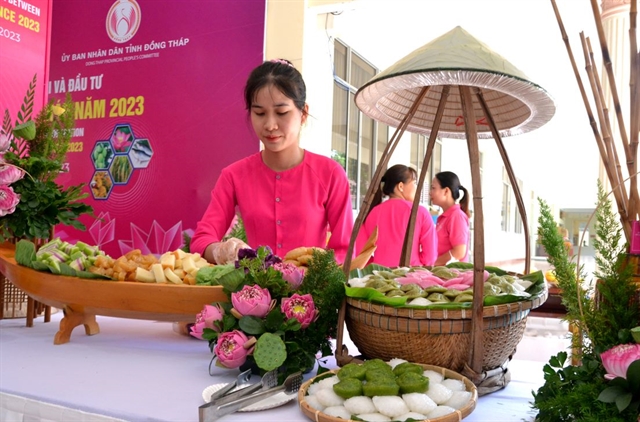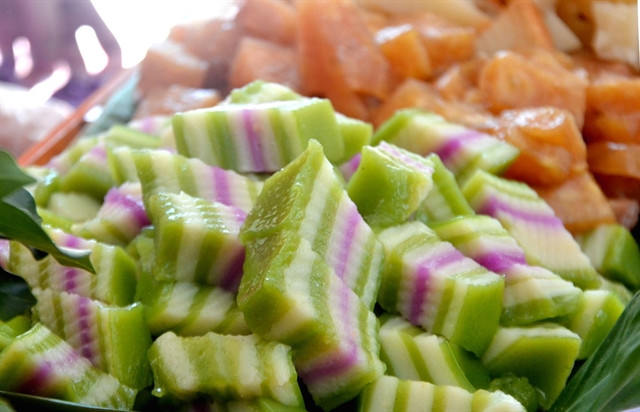 Life & Style
Life & Style

ĐỒNG THÁP — The craft of making Sa Đéc rice flour in Tân Phú Đông Commune and Ward 2 in the southern province of Đồng Tháp's Sa Đéc City has been officially recognised as a national intangible cultural heritage by the Ministry of Culture, Sports and Tourism.
The ministry has decided to include the Sa Đéc rice flour craft in the National Intangible Cultural Heritage list of traditional handicrafts and folk knowledge.
 |
| Sweet cakes made from Sa Đéc flour are an indispensable dish at important events in Đồng Tháp. — Photo dulich.laodong.vn |
Developed for about 100 years, the craft of making Sa Đéc rice flour has continuously grown in both scale and production methods.
The Sa Đéc rice flour product is made using traditional, natural methods with many cultural stages deeply rooted in the folklore of the Southern region, from the soaking of rice, grinding and fermentation, to drying.
The pure fresh water source year-round and the abundant local rice supply contribute to the superior quality of Sa Đéc rice flour compared to many other regions.
Not only serving as the main ingredient for various famous sweet cakes such as bánh bò (Vietnamese honeycomb cake) and bánh da lợn (steamed Vietnamese layers cake), Sa Đéc rice flour is also chosen by many generations of skilled artisans to create a variety of enticing dishes, such as hủ tiếu (rice noodle soup), bánh canh (thick noodle soup), phở (beef noodle soup), bún bò Huế (Huế-styled noodle soup) and bánh tằm (steamed cassava cake).
 |
| 'Bánh da lợn' (steamed Vietnamese layers cake) is a sweet dessert embraced by many locals. — Photo dulich.laodong.vn |
Sa Đéc rice flour products are well received in both domestic and international markets.
According to statistics, Sa Đéc has 350 households producing flour with over 2,000 workers involved in activities from the flour production process to the final products. — VNS




